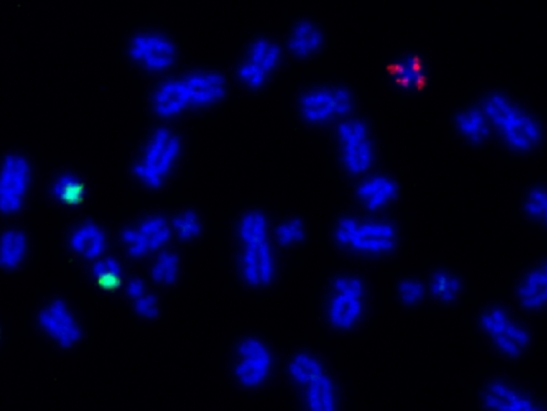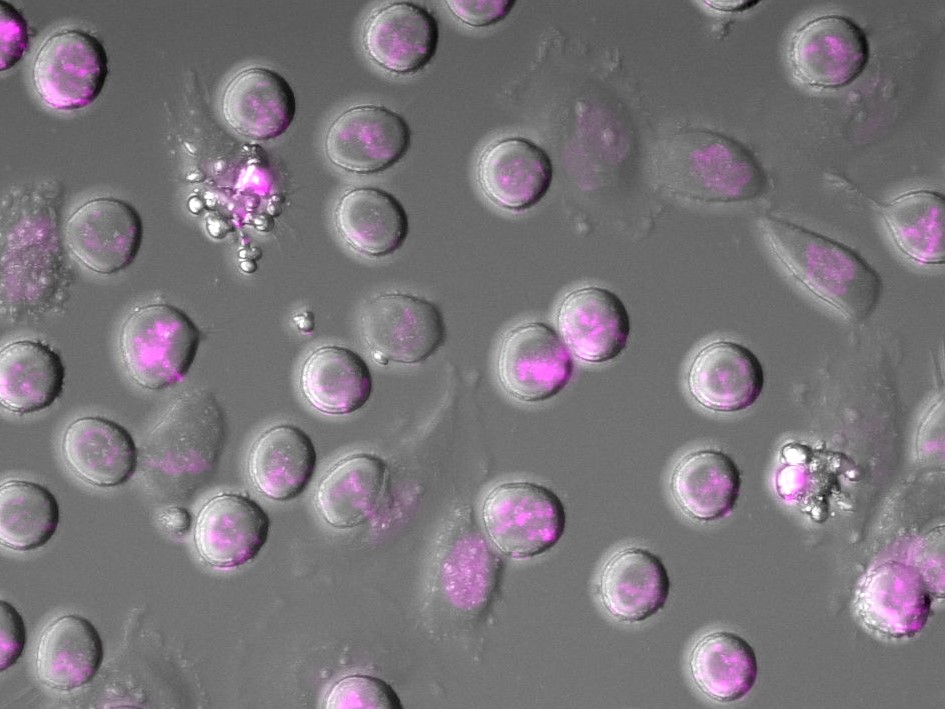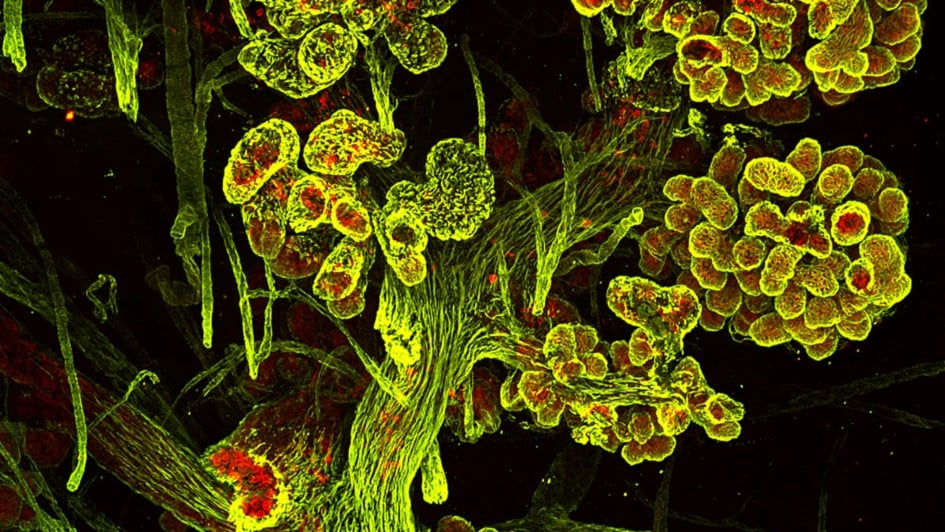Genomics
Advances in the technology to read people’s DNA have made it so much faster and cheaper that we can now read the genetic code of many different genes at once, increasingly by sequencing the entire genome of a patient or their cancer.
Comparing a genome sequence from a tumour cell with one from a healthy cell allows our researchers to pinpoint the genetic changes that are involved in causing cancer, helping us to create new and improved treatments. We can also learn about genetic changes people inherit which may increase their risk of cancer, and this can lead to new ways of preventing the disease.
This page highlights recent news stories, blog posts and videos that concern the use of genomics technologies in cancer research.
Related pages
Recent stories on genomics technologies in cancer research
.jpg?sfvrsn=76dc3c2_2)
Landmark Nature papers unveil ‘dark matter’ shaping cancer behaviour
Cancers can evolve to become more aggressive without relying only on DNA mutations, two major studies published simultaneously in Nature reveal.
-being-attacked-by-two-cytotoxic-t-cells-(red)-547x410.tmb-hbmobile.png?Culture=en&sfvrsn=8f59440b_2)
Deliberately damaging DNA could boost the effectiveness of immunotherapy in kidney cancer
DNA damage is one of the foundational causes of cancer. But researchers have now found that deliberately causing DNA damage – by delivering additional treatments like radiotherapy – could improve the effectiveness of immunotherapy for some people with kidney cancer.

Artificial intelligence unlocks ‘treasure trove’ of billions of cancer samples
Scientists have developed an artificial intelligence (AI) method that could unlock a research ‘treasure trove’ of cancer genomes from billions of preserved tissue samples stored routinely at hospitals over decades.

‘Junk’ DNA could lead to cancer by stopping copying of DNA
Scientists have found that non-coding ‘junk’ DNA, far from being harmless and inert, could potentially contribute to the development of cancer.

Professors Kristian Helin and Trevor Graham elected as Fellows of the Academy of Medical Sciences
Professor Kristian Helin, Chief Executive and President at The Institute of Cancer Research, London, and Professor Trevor Graham, Director of the ICR’s Centre for Evolution and Cancer, have been awarded prestigious Fellowships for the Academy of Medical Sciences (AMS).

Common genetic mutation allows cancer cells to gain extra chromosomes which help them survive
Scientists have found a genetic mutation that results in cancer cells being able to tolerate having an abnormal number of chromosomes – a condition which normally kills cells – allowing them to adapt to their environment and continue to grow.

Damaged DNA – wielding a double-edged sword against cancer
This DNA Day, we look at how our scientists are seeking to understand how cells respond to damage to DNA – and the tricks cancer uses to stay alive despite suffering genetic damage.

Study shows more women with invasive lobular breast cancer should qualify for tailored clinical trials
A new study led by scientists at The Institute of Cancer Research, London, has changed our understanding of invasive lobular breast cancer – and could increase the number of patients who access new treatments via lobular breast cancer specific clinical trials.